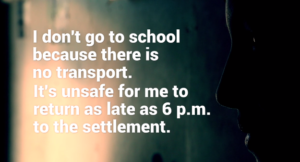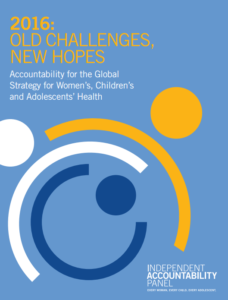Technical guidance for prioritizing adolescent health
 This technical guidance, developed by the UNFPA- and WHO-led Adolescent Working Group of Every Woman Every Child, aims to support countries to both advocate for increased investments in adolescent health and to guide strategic choices and decision-making for such investments to be reflected in national development policies, strategies or plans. It describes a systematic process for identifying the needs, priorities and actions for adolescents to survive, thrive and transform their societies as envisioned through the Global Strategy of Every Woman Every Child. Data sources, resources and tools for conducting a situation assessment and prioritization exercise are also included.
This technical guidance, developed by the UNFPA- and WHO-led Adolescent Working Group of Every Woman Every Child, aims to support countries to both advocate for increased investments in adolescent health and to guide strategic choices and decision-making for such investments to be reflected in national development policies, strategies or plans. It describes a systematic process for identifying the needs, priorities and actions for adolescents to survive, thrive and transform their societies as envisioned through the Global Strategy of Every Woman Every Child. Data sources, resources and tools for conducting a situation assessment and prioritization exercise are also included.
# Imagine a School by UNICEF
 UNICEF launches interactive glimpse into Syrian children’s struggle for education. This new interactive documentary provides an intimate look into the lives of Syrian school-aged children living as refugees in Lebanon. #ImagineaSchool provides a first-hand account of the challenges Syrian refugees face in their struggle to access education. The title of the project, #ImagineaSchool, is a quote from two of the girls interviewed that had never been to school. Nearly six years into the violence, half of all Syrian children, or 2.8 million, in Syria and neighboring countries, are out of school. Some of the main obstacles are poverty, social exclusion, discrimination, insecurity, vulnerability, language barriers and lack of information.
UNICEF launches interactive glimpse into Syrian children’s struggle for education. This new interactive documentary provides an intimate look into the lives of Syrian school-aged children living as refugees in Lebanon. #ImagineaSchool provides a first-hand account of the challenges Syrian refugees face in their struggle to access education. The title of the project, #ImagineaSchool, is a quote from two of the girls interviewed that had never been to school. Nearly six years into the violence, half of all Syrian children, or 2.8 million, in Syria and neighboring countries, are out of school. Some of the main obstacles are poverty, social exclusion, discrimination, insecurity, vulnerability, language barriers and lack of information.
To access downloadable video and photo content from the series, visit: http://uni.cf/2jt2WHi
To watch the interactive series, visit: www.imagineaschool.com
To watch the #ImagineaSchool ‘making of’ video, visit: http://bit.ly/2iL2PWj
Positive Youth Development Measurement Toolkit
The Positive Youth Development Measurement Toolkit, developed by YouthPower Learning, provides guidance and resources for implementers of youth programming in LMICs to integrate PYD principles in their monitoring and evaluation (M&E) systems and effectively measure PYD outputs and outcomes within their programs. This online toolkit provides an introduction and a brief overview of the toolkit. The complete toolkit can be downloaded here.
The overall goal of this toolkit is to help programs effectively measure PYD outcomes in order to improve program performance over time, contribute to the body of evidence on PYD, and ultimately influence multi-sector outcomes and impact of youth programming.
IAP Inaugural report
The Independent Accountability Panel’s (IAP) inaugural report provides a framework to assess the global community’s progress on the Global Strategy for Women’s, Children’s and Adolescents’ Health 2016–2030. The report argues that urgent action is needed to meet global health commitments to women, children and adolescents through the Sustainable Development Goals.


